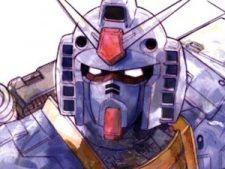Nov 15, 2020
Wish fulfilment fantasies are ubiquitous in anime. The mecha genre explores power fantasies, the harem genre explores romantic fantasies. Summer Wars is an anime in this tradition, but it is certainly more complicated than the straight-forward wish fulfilment fantasies of ‘Escaflowne’ or ‘Tenchi Muyo!!’.
In one way, Summer Wars is a wish-fulfilment fantasy for the lonely, for those seeking family. It reminded me of Ingmar Bergman’s Fanny and Alexander in that way. When we first find our protagonist, Kenji, he’s holed up in a computer lab with another nerdy friend, working part-time as a programmer during a particularly hot summer. He’s suddenly plucked from this lonely
...
existence and thrust into a friend’s colourful family celebrating a matriarch’s birthday.
In another way, Summer Wars is a wish-fulfilment fantasy that rewrites Japan’s loss in World War II. The plot in Summer Wars concerns a rogue artificial intelligence bent on wreaking chaos around the world. It’s no coincidence that the party responsible for unleashing the AI is the US military, and it’s no coincidence that the party responsible for fighting off nuclear disaster is a Japanese family.
Shadows of Hiroshima and Nagasaki abound in Summer Wars; like so much of Japanese cinema, Summer Wars reflects an ambivalence towards technology: Akira, Tetsuo: The Iron Man, Appleseed, Ghost in the Shell, and The Man Who Stole The Sun are all about the different ways technology benefits and harms humanity.
It’s no surprise that a film coming from nation that suffered nuclear armageddon would have this attitude.
In a third way, Summer Wars was a wish-fulfilment fantasy that rectified the loss suffered by the Takeda clan in an ancient war of unification. The family at the centre of Summer Wars is descended from the Takeda clan. The Takeda clan lost in 1615 to the Tokugawa clan, and subsequently dispersed. I don’t really know what Hosoda is trying to say about the unification wars and Tokugawa victory that took place at the end of the sixteenth century. But here, the underdog descendants of the Takeda clan are finally able to band together and save the day.
The rogue AI (called ‘the Love Machine’) particularly reminded me of ‘the Human Instrumentality Project’ in Neon Genesis Evangelion. But where Evangelion’s Human Instrumentality Project was treated with a moral and spiritual ambiguity, the Love Machine in Summer Wars was treated less ambiguously: it was an agent of chaos, subsuming and corrupting everything in its path.
I'm not really sure what to make of that. Is 'the Love Machine' like a modern-day Tokugawa clan, subsuming everyone in its path into a coerced unity?
I was totally fascinated by the ‘extremely Japanese’ aesthetic of Summer Wars. That’s not to say I found the look of the film to be ‘generically anime’. Quite the opposite. My take on this is that the look was inspired heavily by both Japanese woodblock paintings (the use of panels within the frame to tell the story), and by artists of the ‘superflat artistic movement’, like Takashi Murakami (the character designs were so flat, there was often no shadow gradients at all, and whenever I did notice shadows, they were often only a singular gradient).
I loved the movie, but I didn’t think everything in Summer Wars worked, though. Kenji was not an interesting protagonist - ironically, he was little more than an avatar. He was a window into the world of the Jinnouichi family. The characters around him were far more interesting and had bigger arcs - I think Wabisuke would’ve been a much better protagonist.
And I thought the moment at the end where OZ users from around the world gave the protagonists their ‘spirit energy’ was like something out of Dragon Ball Z.
But I loved the film, I really did. The family at the centre of the story was so warm and felt real. It reminded me of how I felt when I spent time with my own extended family as a child. It made me long for that feeling again.
Reviewer’s Rating: 7
What did you think of this review?
Nice
 0
0
Love it
 0
0
Funny
 0
0
Confusing
 0
0
Well-written
 0
0
Creative
 0
0Show all
